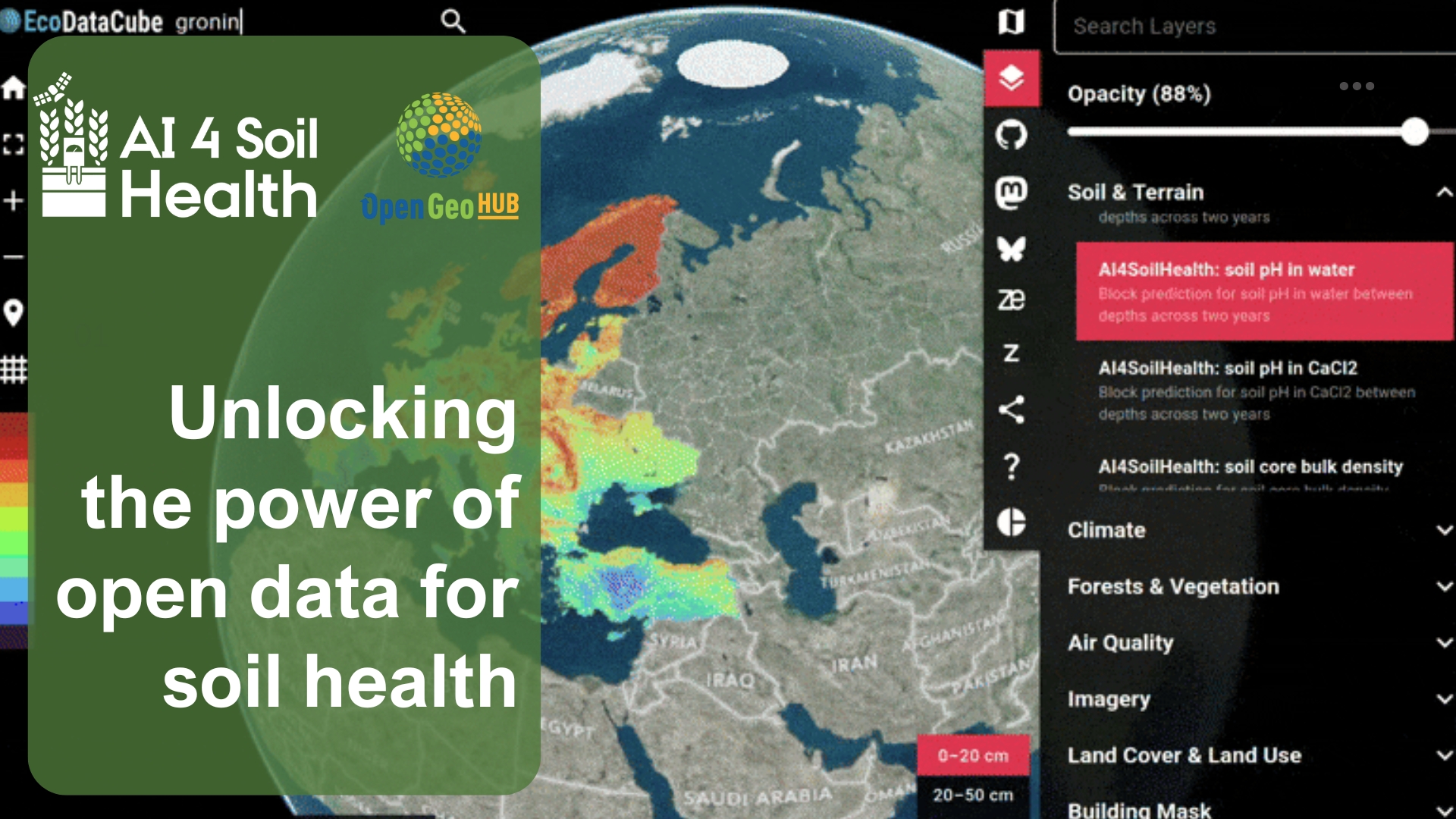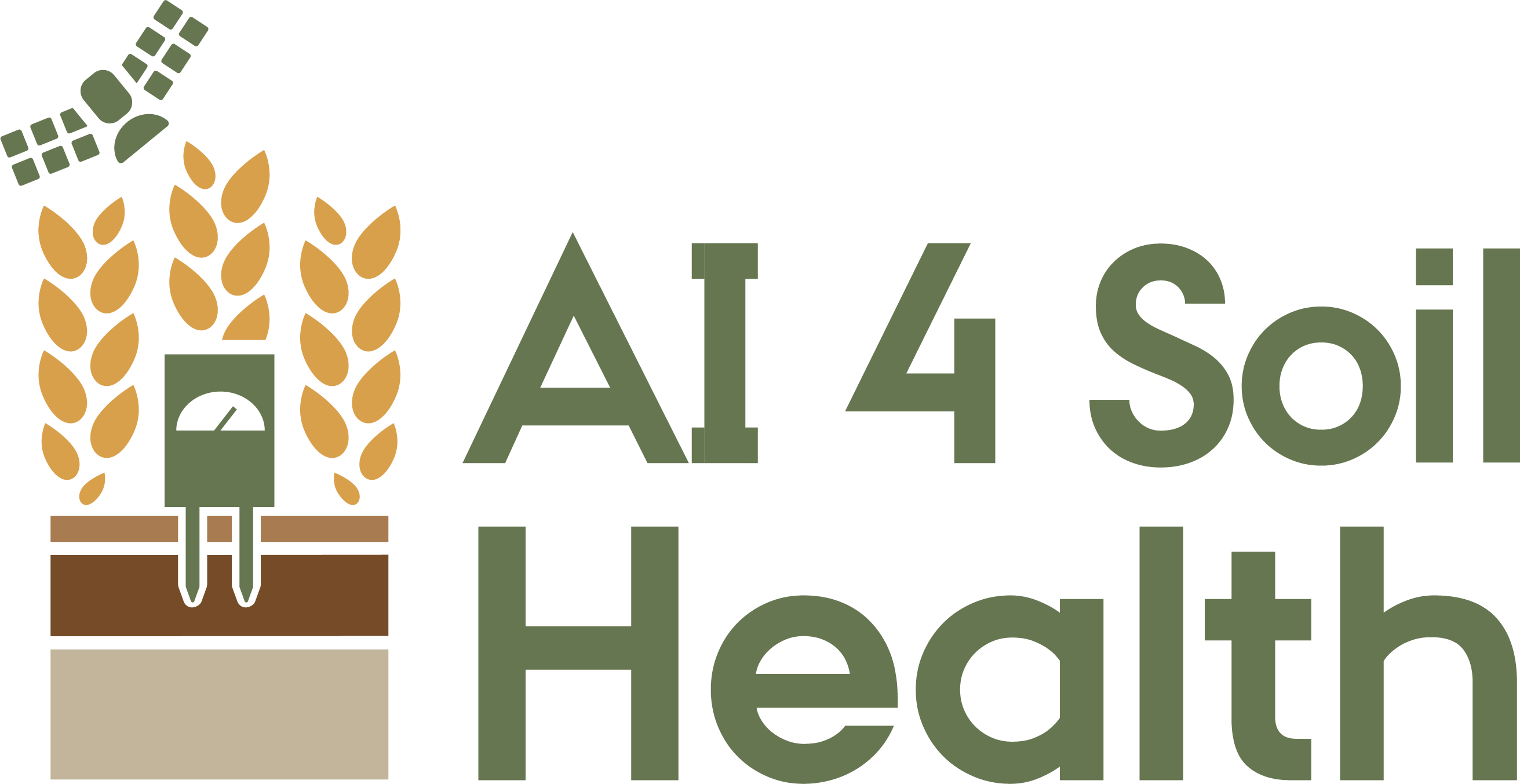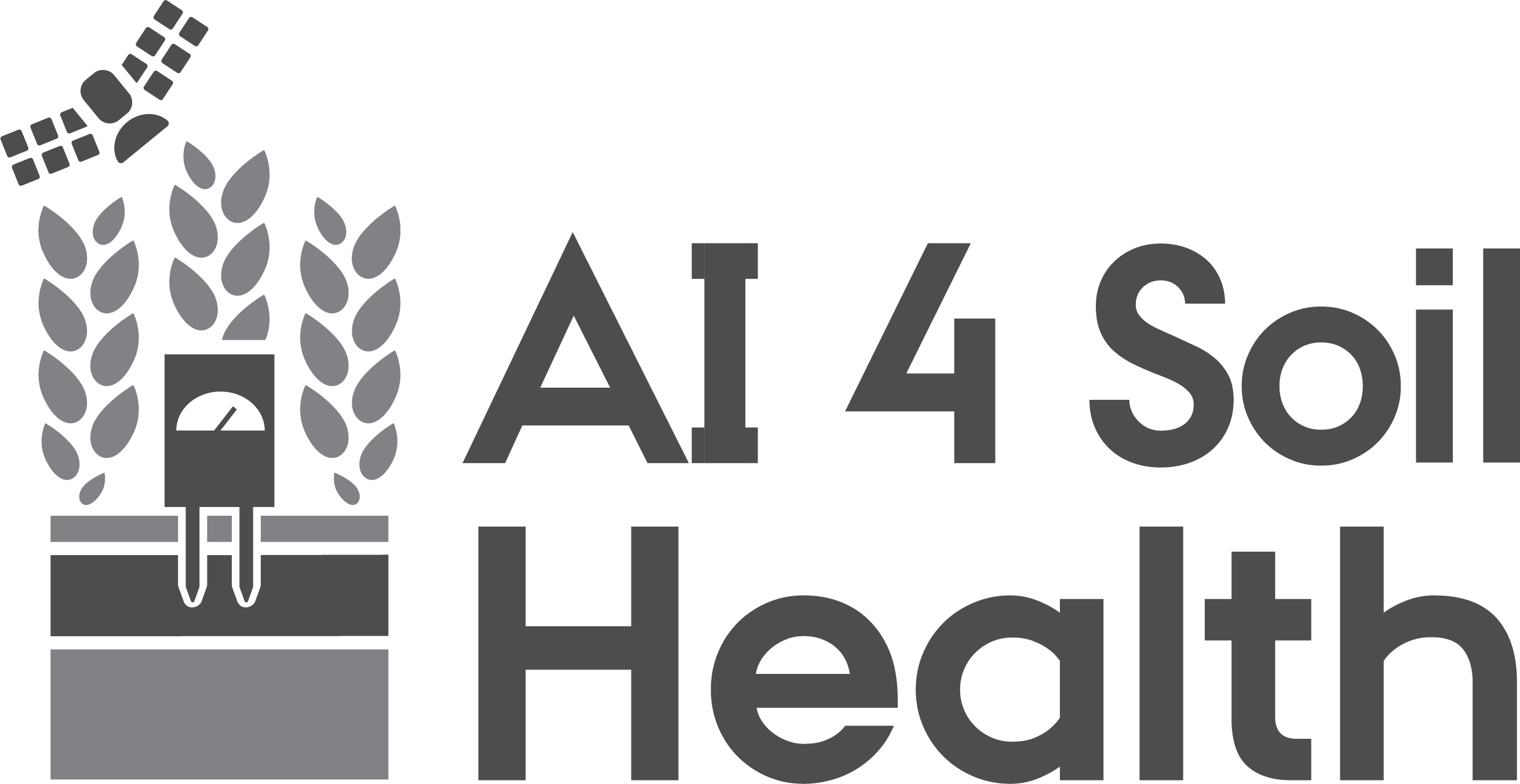
- This event has passed.
Unlocking the power of open data for soil health

Join the first session in the series “Envisioning the future of soil health monitoring”, hosted by the Soil Association.
Join one of the creators of the Soil Health Data Cube, OpenGeoHub Foundation, for this webinar in the AI 4 Soil Health project’s series, exploring how AI, open data and new research is transforming soil health monitoring and management across Europe.
This webinar will showcase how open, high-resolution geospatial data is unlocking new ways to model soil systems, predict climate change impacts, and drive regenerative agricultural practices.
“Only farmers and land managers are the agents of change in a landscape. As an open-source community of researchers, we hope that by surfacing existing and cutting-edge soil information through space and time, we can cultivate an environment of self-determination for farmers, to the benefit of all our children.”
Ichsani Wheeler, OpenGeoHub Foundation
Find out more about the data cube
What to Expect?
Learn how open data infrastructure can support decision-making, policy, and innovation within agriculture and land management.
Hear from co-directors of OpenGeoHub Foundation, Tomislav Hengl and Ichsani Wheeler on their experience of creating data infrastructure in the form of the Soil Health Data Cube, for policymakers and land managers to better manage soil health.
See a live demo of the Soil Health Data Cube in action.
Ask your questions to OpenGeoHub Foundation through a live Q&A.
What is the significance of the Soil Health Data Cube?
This platform is providing the data to enable simulated climate and policy scenarios, identify at-risk soils and test land-use strategies. It will be an invaluable tool for anyone working to restore soil health and reduce land degradation across Europe.
The Soil Health Data Cube offers a “digital twin” of Europe’s soils, integrating:
Detailed soil health indicators such as carbon stocks, pH and biodiversity.
Data on soil pollutants, excess nutrients and salts.
Historical land use and vegetation data.
Who Should Attend?
Policy-makers and civil servants who are engaged in soil-related strategies, projects, or regulatory initiatives.
Research leaders and scientific experts involved in soil monitoring programmes, Living Labs and the development of research and innovation policy recommendations.
Practitioners and innovators working on soil health and using or testing new monitoring approaches.
Stakeholders from civil society, NGOs, and grassroots movements with an active interest in soil health.
Private sector representatives contributing to or benefiting from soil health innovations.

